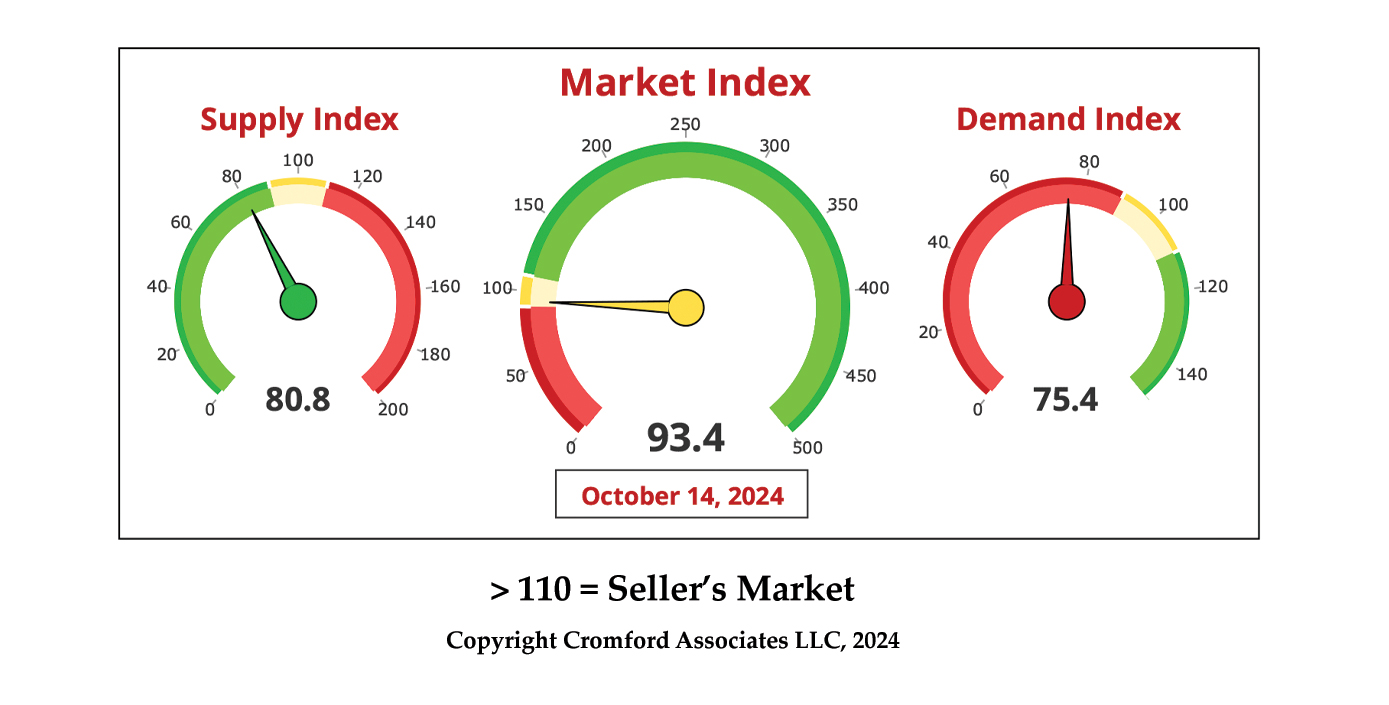
Every four years we get a new round of global uncertainty that is laced with hope, and more often than not, a great deal of trepidation. The last two decades have been especially wrought with this mixture of emotions, and this, of course, leads to big questions around what effect this all has on the housing market. Every day as we meet with buyers and sellers we are asked, “should I wait until after the elections are over to move?” To this, the only fair answer I can give is to say that this is entirely up to the individual, their families, and their unique circumstances. The simple truth is that election cycles don’t actually affect the housing market in any notable way… or at least that’s what the data tells us. With that said, however, I thought it would be good to address this question in a bit more detail because I don’t think it’s quite as easy or as straightforward as looking at the data alone.

We measure the housing market in myriad ways, from the balance of supply and demand to overall sales volume, to home sale prices. For the sake of this question we will address sales volume, which is fairly indicative of buyer’s and seller’s opinions and confidence in the market. It is important to note that people buy and sell homes first and foremost because of their own life changes. Life events such as marriage, growing or shrinking families, death, illness, and divorce, just to name a few. Generally speaking, these life changes are entirely independent of anything even remotely related to politics, and therefore the decision to buy or sell is also usually independent of politics. Let’s look at the data (according to The Cromford Report). Looking at sales volume in the 5 months preceding a November general election, we see the following: Stronger than normal sales volume in 2004 and 2020. In 2012 and 2016 volume was at “normal / average” levels, and in 2000 and 2008 sales were below average. Examining this further at a more political level, the sales volume levels are also irrespective of Democrat or Republican wins or incumbency. Outside of buyer and seller life events, the issues that have more effect on sales volume are more related to economic recessions, housing booms, and global pandemics.
I’m a firm believer in the data and also feel that it tells its own story, but data alone can fail in seeing the human element, which I believe is also a very important point to consider. So, let’s address what we’re seeing at a more anecdotal level because, as I said, we meet with buyers and sellers every day that are questioning what to do. Regardless of which side of the political aisle you fall on, the uncertainty around the direction of our country and the economy weighs heavy on the mind. I can say that we do absolutely see people waiting to make a move until after the election. Is it the majority or even a very large percentage? No, probably not, but it’s enough of a factor that I do feel it’s an important discussion. Without thinking very hard, I can name at least a dozen or more clients of our own in the past few years that have either moved states, sold their home and moved into an RV, or decided to stay in their current home because of their political beliefs. In advising our clients, I again say that making the decision to buy or sell a home… to pick up and move your life is completely and entirely personal to you and your own beliefs around what is best for you and your family. To the question of whether or not our broader housing market is ultimately affected one way or another, however? I think the data does speak for itself. If you are considering making a move and would like to discuss your specific situation, please give me a call. I’d love to talk nerdy with you :)


